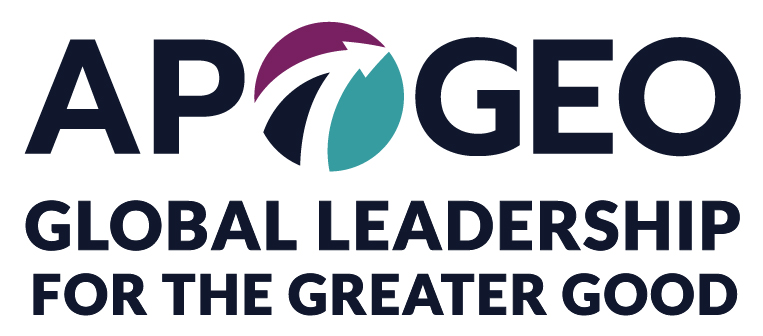2020: The Year of Overdue Surprises
2020 has left leaders unprepared and racing to address changes that have been a long time coming: a shift to virtual and remote working, increased focus on environmental imperatives and longer time horizons, and social challenges facing employees and communities. Even the pandemic was predicted and warned.
None of these changes is new — the research, practical application, and resources go back at least two decades. And yet this year feels surprising. Why is that?
From the #FutureOfWork to BP declaring peak oil by 2030 to new workplace conversations for inclusion and social justice, perhaps 2020’s greatest contribution will be that we can no longer avoid conversations and foundational challenges we’ve stepped over or worked around for a long time. 2020 feels surprising because it’s time to address things leaders have chosen to ignore.
“I wish I’d listened sooner.”
It’s no surprise then that one thing leaders around the world are saying in 2020 is, “I wish I’d listened sooner.”
What is there to do when you realize after that fact you should have listened to an individual or a larger trend? When you realize you should have acted sooner? How do you best address that mistake or delay? Here are a few recent examples and tips to use now.
On Sustainability
In a Harvard Business Review article this summer, CEO Ed Townley shared that his Chief Marketing Officer Roberta MacDonald had always been visionary, first urging the company to incorporate more organic products as early as 1995 and then in the early 2000s pushing toward sustainability metrics and certification as a BCorp. He was skeptical initially but grateful they were prepared when their largest national distributors asked and the company was able to illustrate sustainability metrics & commitment. His advice to others includes:
“Trust those future-oriented employees who are telling you it’s important. Don’t be afraid to be first in your industry, sector, or country, or the first organization of your size to do it. “
On Social Justice
Colin Kaepernick was the NFL’s future-oriented employee pointing out something important, and the response he initially received is not unlike what many innovators or disruptors face within their organizations. He was ridiculed and pushed out. In most organizations that process doesn’t happen as publicly, but it happens. Just as in more common situations, leaders and spectators may claim the demotion or other changes are due to performance. Statistical analysis reveals that Kaepernick’s sidelining was not on the basis of performance but for silently taking a knee.
Now that knowledge of the extent of the problem is more widely known and concern more widespread, NFL commissioner Roger Goodell wishes he’d listened sooner. Several times in recent weeks, he’s expressed the sentiment, going as far as saying the league was “wrong” for failing to listen to players who protested social injustice.
“Well the first thing I’d say is I wish we had listened earlier…”
On the Pandemic
Another leader’s response illustrates it’s not just listening leaders wish they’d done sooner, but also taking action. With regard to the pandemic, one CEO in Europe told us,
“I’d been working in China; I saw what was happening. I knew it was coming… I’m not sure why I didn’t act sooner when I saw it myself. I guess I hoped I wouldn’t have to.”
Lessons From Your Leaders: What You Can Do
In our work with leaders we see this all the time — it’s not just 2020. Steering Groups ignore the signals for both issues and new opportunities in projects. Whole teams continue doing their work the way it’s always been done instead of implementing new ideas or technologies.
What else gets ignored, stepped over, worked around? Here are some questions to ask yourself, lessons from these examples:
- Who are your future-oriented employees trying to flag something important?
(Keep in mind their timing may be off; they may have been labelled difficult when they tried to contribute.) - Do your mid-level leaders see these employees as assets rather than threats? Do you?
- What issues should you be preparing for vs. avoiding?
If you’re in the “I wish I’d listened (or acted) sooner” camp:
1. Listen and act as soon as you can.
This might not be pretty or easy, but it’s important. Act fast. Take responsibility clearly and completely then lay out steps you’ll take to make it right. (Do this repeatedly; it’s harder to correct a mistake than make one). Build in check-ins or accountability to ensure follow-through.
2. Make time for listening
When most leaders think of listening, they imagine time-consuming one-on-one meetings with direct reports. When we work with leaders on listening, it’s at the level of individuals, of teams & organization, and beyond to trends and developments they’ll need to learn about and prepare for. How can you teach and incorporate horizon scanning into your leadership routines?
3. Don’t just listen to, listen for.
When you listen, don’t just hear the words people say; listen for what people are committed to and concerned about. Their tone may be frustrated, but that’s only because they’re committed to something that isn’t happening or concerned about something they’re afraid will. If you can listen for concerns and commitments and speak to those, communication becomes clearer and easier.
What lessons are 2020’s surprises teaching you?


